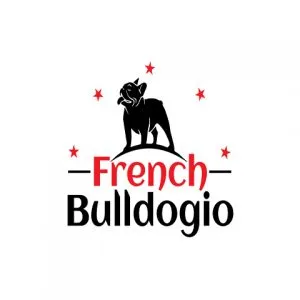
Cauliflower has a lot of antioxidants, which assist to boost our immune systems, as well as vitamins and minerals, which keep us healthy. With cauliflower being present in almost every household nowadays, many pet parents ask if the nutritional benefits of this human food are also available to their French Bulldog? So Can French Bulldogs Eat Cauliflower?
Cauliflower is a wonderful source of fibre, vitamins K and C, calcium, potassium, and folate, all of which are beneficial to your French Bulldog. These vitamins work together to help improve your dog’s blood, vision, muscles, and immune system, among other things. However, if your dog eats too much of this vegetable, it can cause flatulence and other digestive problems.
Continue reading to discover more regarding whether French Bulldogs can eat cauliflower, the benefits, the drawbacks, how to feed cauliflower to your Frenchie and more.
Can French Bulldogs Eat Cauliflower?
Cauliflower, which resembles broccoli in appearance, is one of the greatest veggies you can feed your dog. It has a texture that gives your Frenchie a pleasant chewy nibble in addition to being delicious and safe.
Cauliflower is high in vitamins and minerals, as well as antioxidants, which help your dog’s immune system and general health. When fed in moderation, cauliflower can also be a nutritious snack for any French Bulldogs that are overweight or diabetic.
Surprisingly, dried cauliflower is already present in some popular dog snacks and treats. Plus, this vegetable has a low-calorie count, which is always a plus.
That being stated, your French bulldog does not require cauliflower in its diet to be healthy. Cauliflower, overall, is a low-nutrient vegetable that can be fed raw or cooked and is considered one of the lightest snacks you can feed your Frenchie.
The Benefits of Feeding Cauliflower to Your French Bulldog
Cauliflower, when given in moderation, can provide a range of health advantages for your French Bulldog. Cauliflower not only helps to enhance the digestive system by supplying fibre, but it can also aid to decrease cholesterol levels.
Cauliflower can be beneficial to your Frenchie as long as it is boiled first to prevent bacteria from causing digestive issues. However, if you give your dog too much cauliflower at once, they may become ill as a result of consuming too much food at once.
Nonetheless, cauliflower is high in fibre, which is beneficial to weight loss, colon health, and general digestion, as well as vitamin C, which is beneficial to the immune system and many other biological processes. Cauliflower is also high in vitamin K, which helps keep your Frenchies’ blood healthy, as well as calcium, which supports strong bones and healthy internal organs.
It also contains high amounts of folate and potassium, which are both necessary elements for optimal cell function and growth. Overall, avoid feeding them unwashed or undercooked veggies since a French Bulldog’s stomach is smaller than ours and, as a result, they may have difficulty digesting certain foods.
The Drawbacks of Feeding Cauliflower to Your French Bulldog
There are some small concerns associated with giving too much cauliflower to French Bulldogs, so it’s best to take precautions and get advice from a veterinarian beforehand.
For example, because the stomachs can’t digest some carbohydrates as effectively as humans, there may be increased gas output. When you feed your dog raspberries, pears, or bananas, this can also happen. If you don’t boil the cauliflower beforehand, it can also potentially induce diarrhea due to germs.
This is why you should properly prepare cauliflower, as well as several other vegetables, before feeding them to your French Bulldog.
The Nutritional Value of Cauliflower
Cauliflower is a nutritional powerhouse in addition to being the “it” vegetable. This is why some who follow a plant-based diet consider it essential. After all, cauliflower, like its cousin broccoli, is high in vitamins and minerals. Thankfully, your Frenchie can also benefit from this vegetable in the same way as humans do.
Cauliflower is Rich in Antioxidants.
Vitamin C, found in cauliflower, is an antioxidant that aids in the battle against free radicals boosts the immune system, and protects dogs from cellular damage.
A Low-Calorie Snack
Cauliflower has a high water content and is also considered is a high-fibre food. As a result, small portions of this water-dense vegetable, which is made up of 92% water, will, fortunately, keep your Frenchie hydrated.
On the other hand, the fibre also makes your dog feel full, which is beneficial if they’re attempting to shed some pounds. Fibre is also good for your French Bulldogs’ colon health and promotes regular bowel movements.
High In Potassium and Vitamin K
Frenchies who appear fatigued or weak may require something to boost the electrical charges in their muscles, nerves, and heart. Cauliflower, fortunately, is high in potassium, an electrolyte that is essential for your dog’s wellness.
Cauliflower, like asparagus, is also high in Vitamin K, a fat-soluble molecule. Since Vitamin K activates your dog’s blood clotting abilities, this vitamin comes in useful when they get wounded or scraped.
How Much Cauliflower is Safe to Feed Your French Bulldog?
When it comes to how much cauliflower is acceptable to feed your French Bulldog, keep in mind that too much might cause stomach discomfort and excessive gas, so provide the quantity that is appropriate for your dog’s size.
A Frenchie, for example, could only be able to eat one or two pieces of cauliflower each day. Larger dogs, on the other hand, can consume up to four pieces of cauliflower every day.
Overall, cauliflower, along with a variety of other vegetables, should be a component of a well-balanced diet. Unfortunately, cauliflower in big amounts can upset your French Bulldog’s stomach. This is also true if it is polluted, even if merely by soil contamination.
How to Feed Cauliflower to Your French Bulldog?
Cauliflower is best offered simple and unseasoned to your French Bulldog. The fibrous vegetable can be cooked, steamed, roasted, mashed, or riced. Cooking cauliflower, on the other hand, minimizes the danger of choking and makes it more digestible.
Raw cauliflower should only be fed in little amounts to your Frenchie, as greater amounts might cause digestive issues or flatulence. As a result, you should consider it a once-in-a-while treat rather than something to consume on a regular basis. Therefore, it should only be added to your dog’s regular dog food once a week.
Although you can give your French bulldog both raw and cooked cauliflower, dressings and seasonings must be avoided since salt, pepper, spices, vinegar, oil, herbs, and other ingredients can, unfortunately, endanger your pet. So, stay away from them at all costs.
If your Frenchie happens to eat seasoned cauliflower by mistake and has stomach pain, nausea, vomiting, or diarrhea, see your veterinarian as soon as possible.
Onions and garlic are also very poisonous to dogs. The chemical substances found in allium root crops can harm red blood cells, resulting in anemia. As a result, all onion, and garlic products, including powders, should be avoided.
What Are the Symptoms of an Allergic Reactions to Cauliflower in French Bulldogs?
Allergic reactions to cauliflower are extremely uncommon and unlikely to occur. However, if you see strange behaviour and suspect food allergies are to blame, make an appointment with your local veterinarian. They should be able to assist you.
Final Thoughts
Cauliflower is a great snack for your tiny French bulldog, despite the fact that it isn’t the most nutrient-dense vegetable. Just be careful not to feed them too much cauliflower since it can induce bloating and gas. Overall, it’s acceptable to feed your Frenchie this wonderful and crispy vegetable as long as you do it only once in a while and in tiny amounts. So the question Can French Bulldogs Eat Cauliflower the answer is yes.
Cauliflower, in general, has a chewy texture that your Frenchie will like, in addition to being delicious and safe. When giving cauliflower to your French bulldog, however, avoid using sauces and seasonings because these components might induce stomach pain, nausea, vomiting, and diarrhea.
Latest post’s
